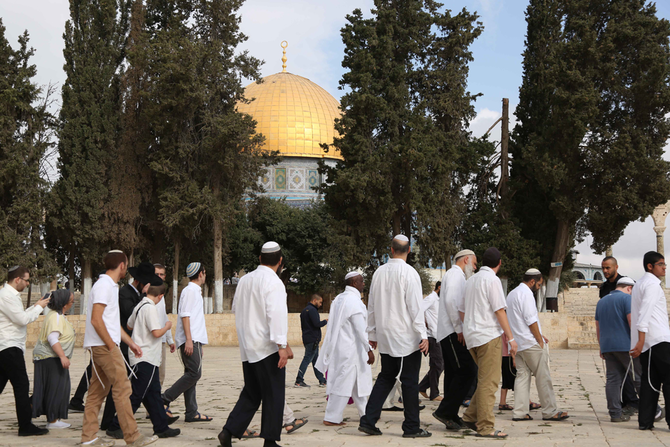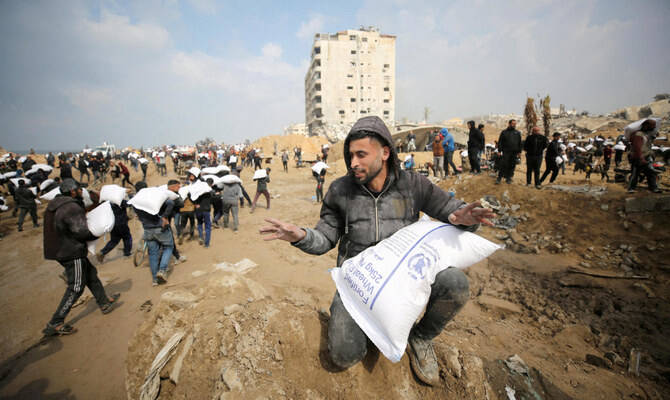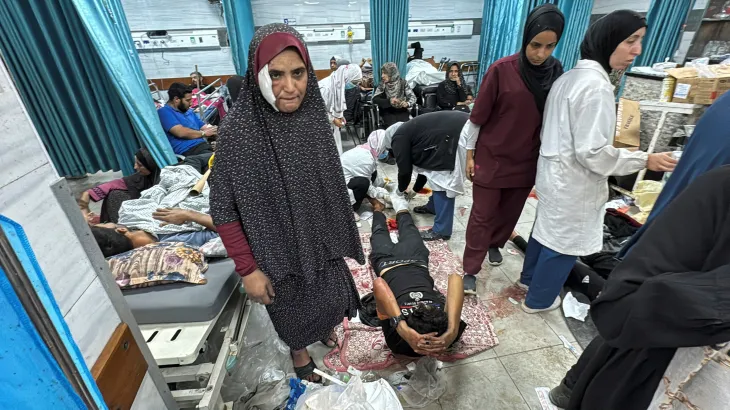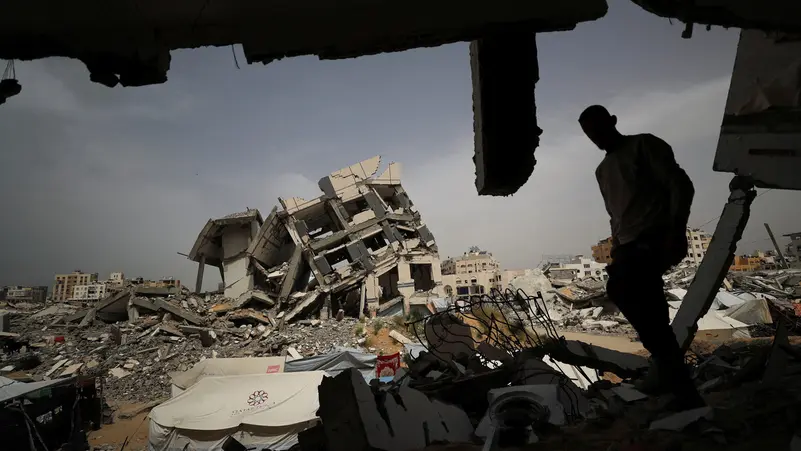The Al-Aqsa Mosque holds a profound place in the hearts of millions, representing not only a site of worship but also a symbol of cultural and historical identity for Muslims around the world. It is regarded as the third holiest site in Islam, following Mecca and Medina. The mosque’s significance is deeply rooted in Islamic tradition, as it is believed to be the site from which the Prophet Muhammad ascended to heaven during the Night Journey (Isra and Mi’raj). This historical context establishes its importance not only religiously but also culturally as a beacon of faith.
The location of the Al-Aqsa Mosque is equally significant, situated in the Old City of Jerusalem, a city that is central to three major world religions: Islam, Christianity, and Judaism. Over centuries, it has symbolized the confluence of these faiths, making it essential to the narratives and aspirations of various communities. The mosque complex encompasses various historical structures that date back to the early Islamic period, reflecting exquisite architecture and art. Such a rich legacy is vital to understanding not only Jerusalem’s historical landscape but also the tensions that have arisen around it.
Recent events, including the increasing tensions from incidents such as Israeli settlers storming the Al-Aqsa Mosque during significant religious periods like Passover, highlight the ongoing conflicts surrounding this sacred site. These acts often provoke distress among local Palestinian communities and the wider Muslim world, reinforcing the mosque’s position as a focal point in the struggle for rights, recognition, and peace in Jerusalem.
Understanding the significance of the Al-Aqsa Mosque thus involves recognizing its multifaceted role: a spiritual sanctuary, a historical monument, and a flashpoint in contemporary geopolitical issues. Its preservation and respect are not merely religious concerns but are also critical for the social fabric of Jerusalem itself, stressing the need for peaceful coexistence amid ongoing strife.
Recent Events: Israeli Settlers Storming Al-Aqsa Mosque During Passover
The Al-Aqsa Mosque has been a focal point of religious and political significance in Jerusalem, and recent events have added to its contentious history. During the Passover holiday, a large group of Israeli settlers entered the mosque compound, raising alarms and tensions not only within the local community but also among international observers. The storming of the Al-Aqsa Mosque by Israeli settlers underscores the ongoing conflicts surrounding this sacred site, which holds deep meanings for both Muslims and Jews.
This incident has highlighted the fragile state of affairs in Jerusalem, as the Al-Aqsa Mosque is often a flashpoint for clashes. The actions of the settlers, perceived as provocative, have been met with condemnation from various sectors, emphasizing the need for dialogue and understanding. The implications of such events extend beyond immediate disturbances, impacting broader peace efforts in the region.
Past occurrences at the Al-Aqsa Mosque have shown that tensions can escalate quickly, particularly during sensitive times such as religious holidays. As tensions heighten, it becomes increasingly important for both sides to engage in conversations aimed at fostering a spirit of coexistence.
The Implications Of Increased Tensions At Al-Aqsa Mosque
The increased tensions at the Al-Aqsa Mosque have far-reaching implications, not only for the local population but also for the broader geopolitical landscape. As events unfold, the escalating confrontations can lead to heightened unrest, anger, and allegations, which further complicate the already fragile situation in the region. The significance of the Al-Aqsa Mosque as a religious and historical site for both Muslims and Jews means that any disturbance there reverberates beyond Jerusalem.
Recent incidents, such as the storming of Al-Aqsa Mosque by Israeli settlers during religious observances like Passover, illustrate the delicate balance that exists in the area. Such actions can provoke reactions from Palestinian worshipers and supporters, igniting a cycle of retaliation that can increase tensions. The potential for conflict escalates, resulting in a precarious atmosphere that can affect peace efforts and dialogues aimed at coexistence.
Moreover, the implications of these tensions are not just political; they extend to social and economic dimensions, fostering an environment of mistrust and animosity. As individuals from both sides become deeply entrenched in their positions regarding Al-Aqsa, the prospects for peaceful resolution diminish.
Historical Context: Previous Incidents At Al-Aqsa Mosque
The Al-Aqsa Mosque has been a focal point of religious significance and geopolitical tensions for centuries. Its location in Jerusalem makes it a site of immense importance for Muslims, Jews, and Christians alike. Understanding the historical context of previous incidents at the Al-Aqsa Mosque is crucial in realizing the depth of the current tensions that often arise around this sacred site.
Throughout history, the Al-Aqsa Mosque has witnessed numerous confrontations and conflicts. One notable incident occurred during the 1929 Arab-Jewish riots, where violent clashes erupted over access to the mosque. This event not only highlighted the delicate nature of religious access in Jerusalem but also set the stage for future conflicts. Similarly, in 1990, tensions escalated when an incident known as the ‘Temple Mount Massacre’ resulted in dozens of deaths and injuries, emphasizing the volatility surrounding the area.
More recently, the Al-Aqsa Mosque has been at the center of the Israeli-Palestinian conflict, particularly during significant religious holidays when increased security measures are often implemented. The frequency of these incidents reveals the ongoing struggle for sovereignty and access, and how deeply personal and communal identities are tied to this ancient mosque.
In 2021, clashes during Ramadan saw multiple incidents that reignited global conversations about the rights of worshippers and the preservation of the Al-Aqsa Mosque’s legacy. Such events serve as a reminder of the importance of dialogue and reconciliation among communities, as well as the urgency for peace initiatives in the region.
Reflection on these previous incidents is essential, as it frames the understanding of the current situation at Al-Aqsa Mosque. The significance of this site cannot be overstated; it stands as a testament to the richness of faith and a poignant reminder of the fragile peace that exists in Jerusalem.
How To Support Peaceful Coexistence In Jerusalem
Supporting peaceful coexistence in Jerusalem, particularly in relation to Al-Aqsa Mosque, is a vital aspect of fostering understanding and harmony among diverse communities. The historical significance of Al-Aqsa as a religious site for Muslims, Christians, and Jews underlines the importance of mutual respect and dialogue. By emphasizing the role of Al-Aqsa in the city’s rich tapestry, we can encourage individuals and groups to prioritize collaborative efforts aimed at preserving peace amidst tensions.
Education plays a crucial role in promoting peaceful coexistence. Schools and community organizations should prioritize programs that teach about the shared history of Jerusalem and the common values upheld by all faiths. Engaging with various community leaders can help bridge gaps and address misconceptions about each other’s beliefs and practices related to Al-Aqsa Mosque. This is essential for building trust and fostering a spirit of cooperation.
Additionally, participation in interfaith dialogues can play a significant part in supporting peaceful coexistence. These discussions can provide a platform for people from different backgrounds to express their views and concerns related to Al-Aqsa and other sensitive issues in the region. Promoting understanding through open and respectful discussions can lead to a greater sense of community and shared purpose, especially in light of recent events impacting the Al-Aqsa Mosque.
Moreover, supporting local initiatives that focus on humanitarian efforts can also be effective. By helping to address basic needs such as housing, healthcare, and education for all communities in Jerusalem, we can build stronger relationships and reduce grievances that may lead to conflict. When resources are shared and collaboration is prioritized, it sets a foundation for peaceful coexistence surrounding significant landmarks like Al-Aqsa.
Advocacy for respectful policies and practices pertaining to Al-Aqsa Mosque is essential. Community members can engage with local leaders and policymakers to promote initiatives that protect the rights of all individuals to worship and visit this historic site peacefully.





